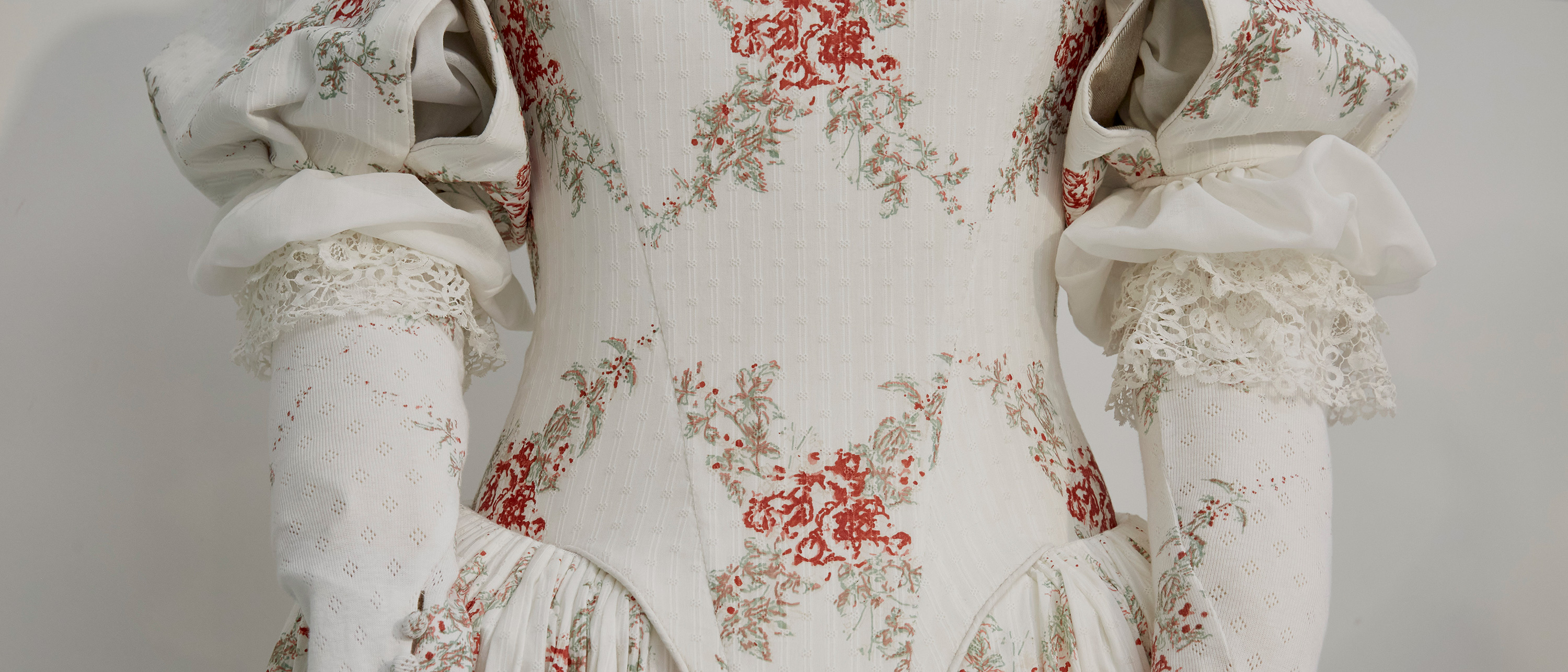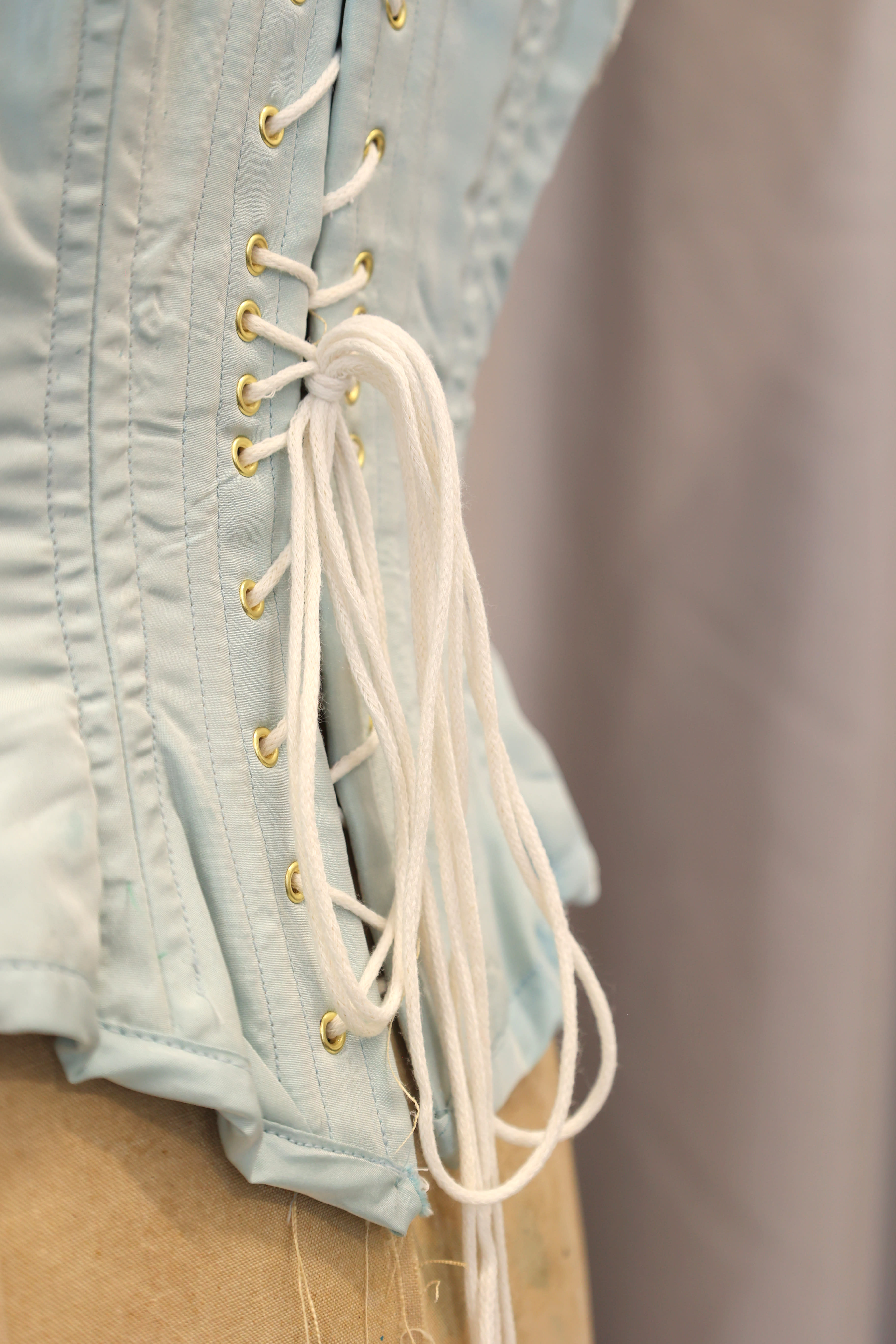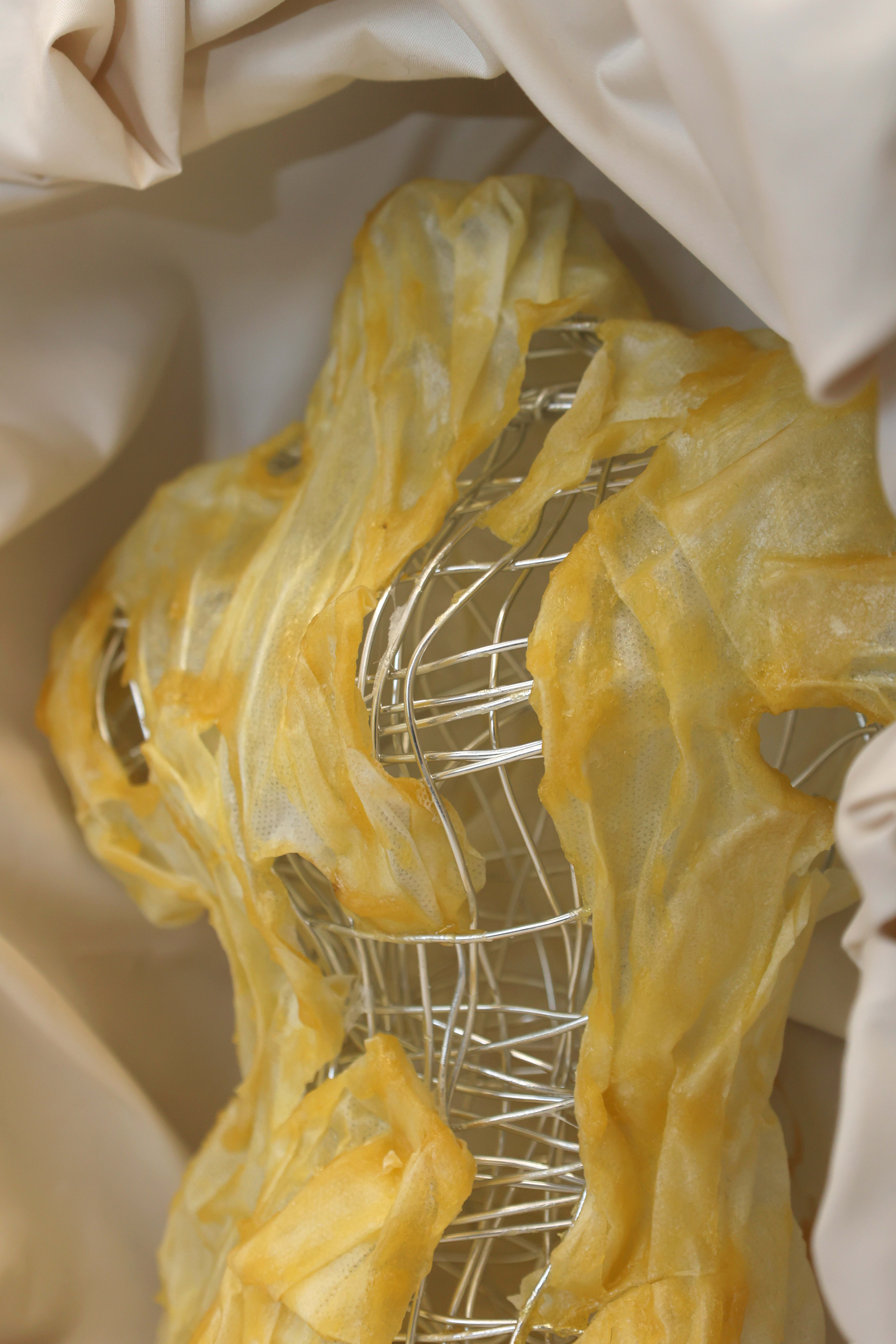Course units
Unit 1 – Research into practice
You’ll explore the construction methods and historical contexts of garments. This will be investigated through analysis of visual sources. For example, through portraiture, photography, existing clothing artefacts and other relevant archival sources.
In response to the research, you’ll:
- develop your realisation skills through practical studio practices and workshops, transforming your discoveries into a 3-dimensional costume artefact
- apply creative costume-making strategies to explore practical responses to methods of representation and realisation
- have regular conversations with your tutor to create a plan that helps you shape and achieve your goals for your final project.
Unit 2 – Sustaining the future
You’ll investigate the social and political value of historical fabrics. You’ll look at their production industries through archival research and their representations in the creative industries.
You’ll also explore the conservation of textiles looking at techniques and conditions for their restoration. This research will uncover any sustainable and social impacts on future decision-making processes related to current costume practices and fabrication.
Unit 3 – Realising the past
You’ll build on and strengthen your costume and materials research from the previous units.
You’ll utilise theoretical and practical skills to create a practical artefact that will aim to:
- reflect historical depth
- address social contexts for a contemporary audience
- demonstrate awareness of carbon footprint in its production.
You may also explore contemporary digital processes to promote these costume realisation requirements.
Unit 4 - Costume and audience
This unit involves choosing, planning and creating a thoroughly researched costume. The decision-making skills that you’ve developed throughout your studies will be applied to this final piece.
Your costume will need to be historically accurate. You’ll apply your research findings and make ethical decisions in your work. You’ll present them to contemporary audiences. Achieving your research goals will involve collaborating with others and showing your grasp of the diverse aspects of costume design.
Your work will also be documented in a process portfolio that will reflect your progress. This will set out your commitment to ethical and sustainable practices. It will showcase your skills and expertise as a costume practitioner.
Note: 120 Credits must be passed before the final unit is undertaken.




